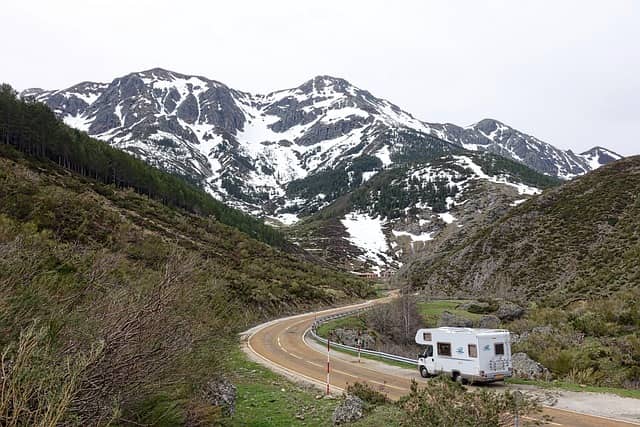Lovers of travel and adventure will never say no to an incredible experience of a cross-country RV trip. If you want to go for a vacation without spending a fortune, an RV cross-country trip is a good choice. All you need is a comfy RV, and you can embark on a journey of a lifetime, all without worrying about exorbitant plane tickets and hotel fees. You can even bring friends and family members with you.
It’s a fun and affordable way to explore the country and experience amazing destinations firsthand. However, it’s not without a few hiccups here and there. For one, an RV cross-country trip can be quite tiresome. If you’re not prepared enough, you might even encounter frustrating obstacles along the way. Clearly, it is not for the faint of heart.
If you’re contemplating having one soon, you must be fully prepared. Here are some useful tips to help ensure your cross-country RV trip will go smoothly, allowing you to enjoy and create memories that will last a lifetime.
- Schengen visa multiple entry: your passport to freedom across borders
- Checklist for Traveling After COVID-19
- 7 Ways To Have A Wonderful Experience After Relocating To A New Country
Consider Your Budget and Goals
Like any other endeavour, it’s important to set your ideal budget and goals. These two essentials will serve as your compass throughout your planned trip. Of course, you’ll need to set your goals first. What do you want to accomplish on this trip? Maybe you would like to visit a particular number of states or cities you haven’t been to yet. Perhaps you want to make as many memories as possible with your travel companions.
Once you have nailed down your cross-country trip goals, it’s time to set a budget. Since you are going on an RV trip, you won’t be shelling out for typical hotel fees and a lot of dining out (if you choose to cook your own food). However, there are some expenditures common to many RV cross-country trips. This includes parking fees, entrance fees, fuel, campground fees, souvenirs, and the occasional restaurant and grocery expenses.
Another thing you need to consider is the entertainment options while on the road. You might need to account for data charges and subscriptions. All of these factors must be taken into consideration when you are setting your budget. You may want to leave a little wiggle room for unexpected spending, just to make sure you won’t have to accumulate credit card debts.
When you have a set budget, it is important to stick to it. This means the next steps in the planning process must consider just how much you are willing to spend for the whole trip.
Think of a Good Route Beforehand

Going on a trip requires at least a destination. It is the ultimate end point of the whole trip. It is the place you will drive to before turning around to begin the return trip. Settling on a destination will help you figure out the how and the when.
Some great ideas you may want to consider for your RV trip include the iconic route 66, spanning Los Angeles to Chicago, and visiting the Great North, which covers Seattle, Washington, and Maine’s Acadia National Park. Others try the border-to-border cross-country RV trip, which traverses a wide stretch of rugged wilderness and some city sights.
A cross-country trip on an RV needs a reliable itinerary that you can go back to. At the very least, you should know where you will be heading and the route you will take to get there. This will inform you how many stops you should be making along the way, usually for food, fuel, and other fun activities you’d like to experience. Having an itinerary ensures you are not simply driving around aimlessly.
Set a Daily Travel Limit and Distance
Long-distance trips can be quite exhausting. It will require you to drive for long periods. This can eventually take a toll on you if you are not careful. If you are going on a cross-country tour, you must set limits on your travel time for the day. You may want to count it by miles, owing to the 2 or 2 rule in many RV travels. You need to stop if you have already covered 200 miles for the day. Alternatively, you may also opt to stop driving by 2 p.m.
The latter allows you to set up for the night and get a good rest before you hop on the RV for another long, tiring day of driving. You must take a break to address problems you encounter during the day, eat a good meal, and take ample rest.
When setting travel limits and distance, it is important to talk to your companions. They must understand when you will stop for meal and restroom breaks and participate in the activities you all planned along the way.
Watch Out for Weather Differences
During your cross-country trip, you are bound to encounter drastic differences in weather, especially when you have already covered a good amount of distance from your state and reached elevated parts of the country.
This consideration will help you prepare for unexpected weather changes. You may have to pack sweatshirts and cold-weather clothing, which will be quite handy if you plan to stop and explore. Being aware of the weather conditions in the area beforehand is important. You can avoid dangerous roads or stay for a day before heading out.
Know When to Avoid Major Cities
If you are planning to pass through major cities, you will need to know when to avoid them during rush hours. After all, driving through heavy traffic can be quite frustrating. There will be impatient drivers on the road who are trying to get to and from work, and joining the fray might be a bad idea.
Besides avoiding rush hour traffic at certain times of the day, consider looking for bypass roads that often accommodate trucks and larger vehicles. This will ensure you will have a better driving experience.
Prepare for Backup for Unexpected Situations
Unexpected situations during the trip must be anticipated. You might encounter problems with the RV along the way. To save time and money from calling roadside assistance. This will allow you to get back on the road quicker.
Just make sure that you can bring appropriate tools to resolve common roadside issues and that you are knowledgeable enough to fix them yourself.
Although it is not really unexpected, staying on the road for long will be quite uncomfortable if you are not prepared enough. Consider putting on a comfy seat cover to ensure the trip will be relaxing even when it can get tiring.
Stock Up on Enough Fuel and Food
Running out of fuel and food is not ideal. You must have enough supplies until you get to the gas station and nearest grocery. It is common to drive for many miles before finding a service station. This will also help you plan your stops accordingly.
Stocking up enough supplies will allow you to enjoy the trip more, reducing the worry of being short on food and fuel. You will want to avoid getting stranded in the middle of nowhere without food and water. It will be a recipe for disaster.
Make Sure to Create a Packing List
Before you go on your exciting cross-country trip, ensure you have packed all the essentials you need. You have to consider your destination, the stops you have identified, and the activities you will be doing so you will know exactly what you will need to bring with you.
Are you going to experience warm days and cool nights? Do you need thick clothes and sweaters? Are you going to fish or swim? What recreational items do you need? Consider bringing a neck pillow or a relaxing sleep mask.
You may want to consider the following common items on your list:
- A pair of sunglasses
- Medications
- Wipes
- Toilet paper
- Paper towels
- Hygiene products
Wrapping It Up
Preparing for a relaxing cross-country RV trip does not happen overnight. It takes time and effort to organise everything you need so that your most awaited journey will go as smoothly as possible. These tips will help you get started.

